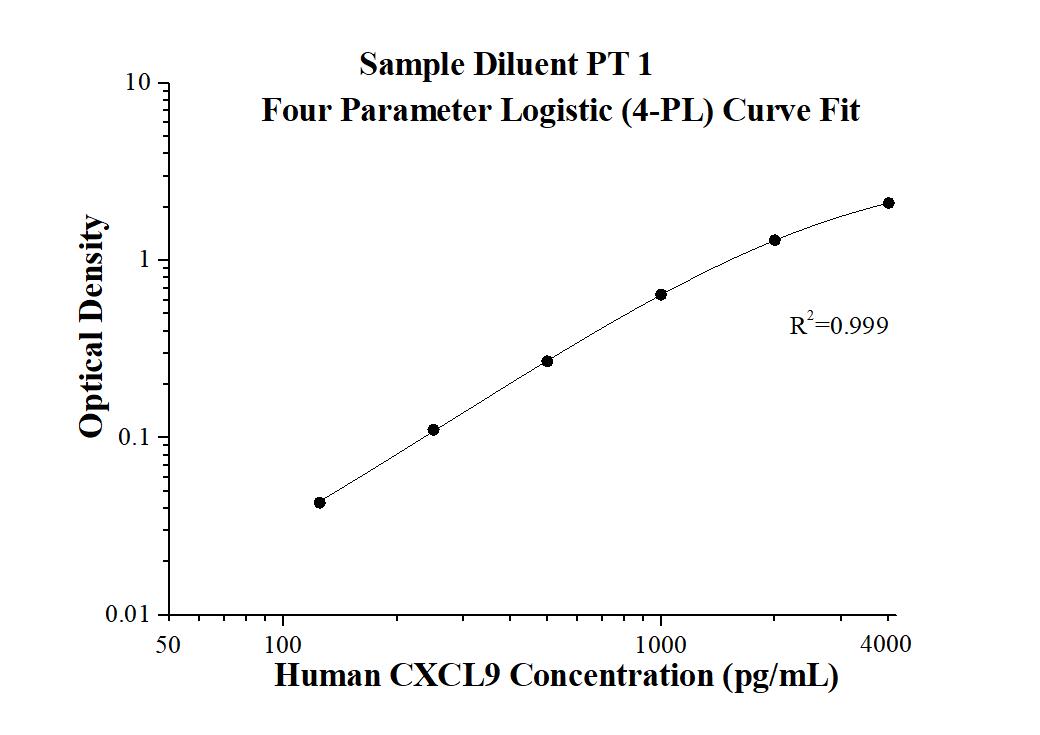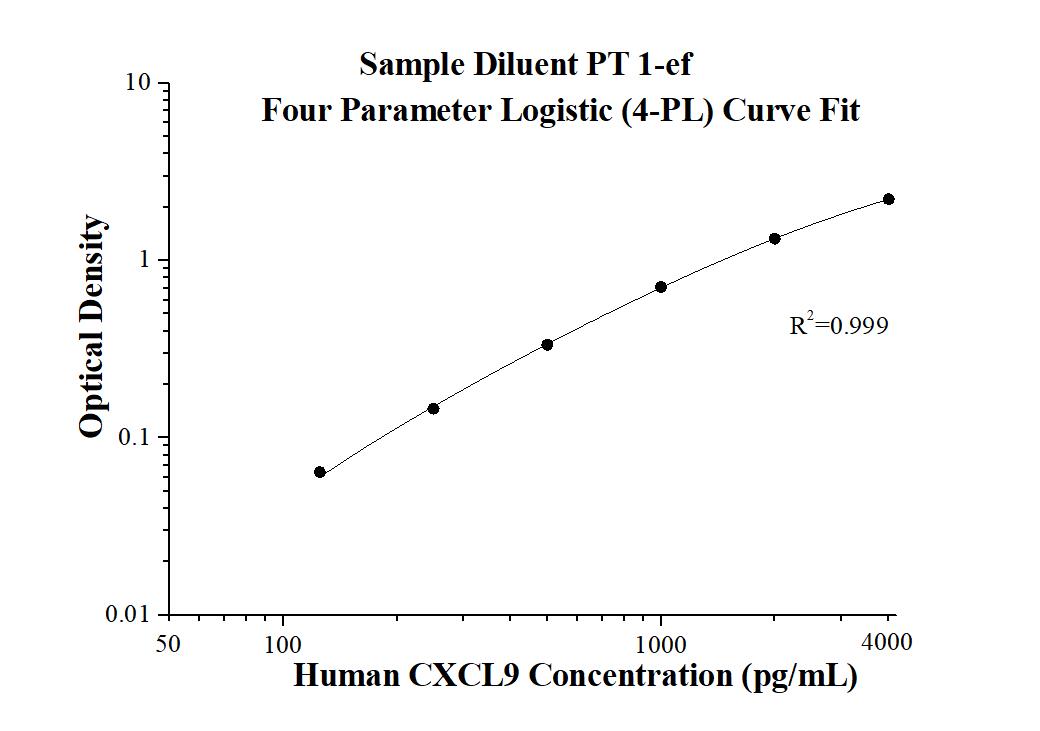Human CXCL9/MIG ELISA Kit
Cat no : KE00165
Synonyms
C X C motif chemokine 9, CMK, crg 10, CXCL9, Humig, MIG, SCYB9, Small inducible cytokine B9
Validation Data Gallery
Product Information
KE00165 is a solid phase sandwich Enzyme Linked-Immuno-Sorbent Assay (Sandwich ELISA). The CXCL9 ELISA kit is to be used to detect and quantify protein levels of endogenous CXCL9. The assay recognizes human CXCL9. An antibody specific for CXCL9 has been pre-coated onto the microwells. The CXCL9 protein in samples is captured by the coated antibody after incubation. Following extensive washing, another antibody of biotinylated specific for CXCL9 is added to detect the captured CXCL9 protein. For signal development, Sterptravidin-HRP is added, followed by Tetramethyl-benzidine (TMB) reagent. Solution containing sulfuric acid is used to stop color development and the color intensity which is proportional to the quantity of bound protein is measurable at 450 nm with the correction wavelength set at 630 nm.
| Product name | Human CXCL9/MIG ELISA Kit |
| Tests | 1 X 96 well plate |
| Sample type | Serum, Plasma, Cell culture supernatants |
| Assay type | Sandwich |
| Sensitivity | 27.5 pg/mL |
| Range | 125-4000 pg/mL |
| Reactivity | Human |
| Tested applications | Sandwich ELISA |
| Gene ID (NCBI) | 4283 |
Recovery
| Sample Type | Average | Range |
|---|---|---|
| Human serum | 102% | 84%-117% |
| Cell culture supernatants | 104% | 83%-125% |
IntraAssay
| Sample | n | mean ( pg/mL) | SD | CV% |
|---|---|---|---|---|
| 1 | 20 | 105.7 | 4.7 | 4.4 |
| 2 | 20 | 422.0 | 10.4 | 2.5 |
| 3 | 20 | 1,866.4 | 73.5 | 3.9 |
InterAssay
| Sample | n | mean ( pg/mL) | SD | CV% |
|---|---|---|---|---|
| 1 | 24 | 104.0 | 6.4 | 6.1 |
| 2 | 24 | 392.4 | 13.6 | 3.5 |
| 3 | 24 | 1,707.4 | 71.0 | 4.2 |
Background Information
CXCL9, also named MIG, is a member of the CXC family and has an important role in the chemotaxis of immune cells. CXCL9 is secreted by various cell types including immune cells (T lymphocytes, NK cells, dendritic cells, macrophages, eosinophils etc.), and non-immune cells (hepatic stellate cells, preadipocytes, thyrocytes, endothelial cell, tumor cells, and fibroblasts etc). CXCL9 plays role to induce chemotaxis, promote differentiation and multiplication of leukocytes, and cause tissue extravasation. Functions of CXCL9 are mostly mediated through its receptor CXCR3, which initiates intracellular signaling pathways like p38 and Erk. CXCL9 is involved in the pathogenesis of a variety of physiologic diseases during their initiation and their maintenance.
Properties
| Storage Instructions | All the reagents are stored at 2-8℃ for 6 months or -20℃ for 12 months. Refer to the protocol for further storage instructions. |
| Synonyms | C X C motif chemokine 9, CMK, crg 10, CXCL9, Humig, MIG, SCYB9, Small inducible cytokine B9 |
Publications
| Species | Sample Type | Title |
|---|---|---|
Adv Sci (Weinh) S100A5 Attenuates Efficiency of Anti-PD-L1/PD-1 Immunotherapy by Inhibiting CD8+ T Cell-Mediated Anti-Cancer Immunity in Bladder Carcinoma | ||
Adv Sci (Weinh) BCAT2 Shapes a Noninflamed Tumor Microenvironment and Induces Resistance to Anti-PD-1/PD-L1 Immunotherapy by Negatively Regulating Proinflammatory Chemokines and Anticancer Immunity | ||
Arch Dermatol Res Repigmentation in non-segmental vitiligo using the Janus kinase inhibitor upadacitinib, a retrospective case series | ||
J Immunother Cancer Overcoming immunotherapy resistance in bladder cancer with a novel antibody-drug conjugate RC48 | ||
Front Immunol Construction of disulfidptosis-based immune response prediction model with artificial intelligence and validation of the pivotal grouping oncogene c-MET in regulating T cell exhaustion | ||
Hum Gene Ther Oncolytic Adenovirus Armoring with CXCL9 and IL15 Shows Potent Antitumor Activity and Boosts CAR-T Therapy for Prostate Cancer |


